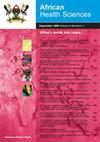前馈控制健康教育干预对糖尿病视网膜病变患者依从性、视功能及自我感觉负担的影响
IF 0.9
4区 医学
Q3 MEDICINE, GENERAL & INTERNAL
引用次数: 0
摘要
目的:探讨前馈控制健康教育干预对糖尿病视网膜病变(DR)患者依从性、视功能和自我感觉负担(SPB)的影响。方法:86例DR患者分为前馈对照组和对照组(n=43)。对照组给予常规护理干预,前馈对照组在此基础上给予基于前馈控制的健康教育干预。比较干预后健康行为指标。采用Pearson 's和Spearman 's系数分析生活质量评分与SPBscore和健康行为指标的相关性。 结果:干预后患者生活质量总分及症状与视觉功能、身体功能、社交活动、心理心理评分均较干预前显著改善,且前馈对照组显著高于干预前(P<0.05)。干预后两组患者SPB评分均显著低于干预前,前馈对照组尤显著(P<0.05)。DR患者的生活质量评分与SPB评分呈显著负相关,与健康行为指标呈显著正相关(p < 0.05)。结论:前馈控制健康教育干预模式有利于指导DR患者促进视功能恢复,降低SPB;关键词:关联;糖尿病视网膜病变;前馈控制;健康教育;自我感觉负担;视觉功能。本文章由计算机程序翻译,如有差异,请以英文原文为准。
Influence of feedforward control-based health education intervention on compliance, visual function and self-perceived burden among patients with diabetic retinopathy
Objective: To assess the influence of feedforward control-based health education intervention on the compliance, visual functionand self-perceived burden (SPB) among patients with diabetic retinopathy (DR).
Methods: Eighty-six DR patients were divided into feedforward control and control groups (n=43). The control group wasgiven routine nursing intervention, based on which the feedforward control group received feedforward control-based healtheducation intervention. The health behavior indices were compared after intervention. The correlations of QOL score with SPBscore and health behavior indices were analysed using Pearson’s and Spearman’s coefficients.
Results: After intervention, the total QOL score and scores of symptoms and visual function, physical function, social activity,and mentality and psychology were significantly improved compared with those before intervention, which were significantlyhigher in the feedforward control group (P<0.05). SPB score was significantly lower in the two groups after intervention thanthat before intervention, particularly in the feedforward control group (P<0.05). The QOL score of DR patients was significantlynegatively correlated with SPB score but positively correlated with health behavior indices (P<0.05).
Conclusion: The feedforward control-based health education intervention mode is beneficial for guiding DR patients to promotevisual function recovery and to reduce SPB.
Keywords: Correlation; diabetic retinopathy; feedforward control; health education; self-perceived burden; visual function.
求助全文
通过发布文献求助,成功后即可免费获取论文全文。
去求助
来源期刊

African Health Sciences
MEDICINE, GENERAL & INTERNAL-
CiteScore
2.30
自引率
0.00%
发文量
179
审稿时长
>12 weeks
期刊介绍:
The African Health Sciences is an internationally refereed journal publishing original articles on research, clinical practice, public health, policy, planning, implementation and evaluation, in the health and related sciences relevant to Africa and the tropics. Its objectives are to: Advocate for and promote the growth of reading culture in sub Saharan Africa; Provide a high quality journal in which health and policy and other researchers and practitioners in the region can and world wide, can publish their work; Promote relevant health system research and publication in the region including alternative means of health care financing, the burden of and solution of health problems in marginalized urban and rural communities amongst the displaced and others affected by conflict; Promote research and the systematic collection and collation and publication of data on diseases and conditions of equity and influence; Promote development of evidence-based policies and guidelines for clinical, public health and other practitioners. African Health Sciences acknowledges support provided by the African Health Journals Partnership Project that is funded by the US National Institutes of Health (through the National Library of Medicine and the Fogarty International Center) and facilitated by the Council of Science Editors.
 求助内容:
求助内容: 应助结果提醒方式:
应助结果提醒方式:


